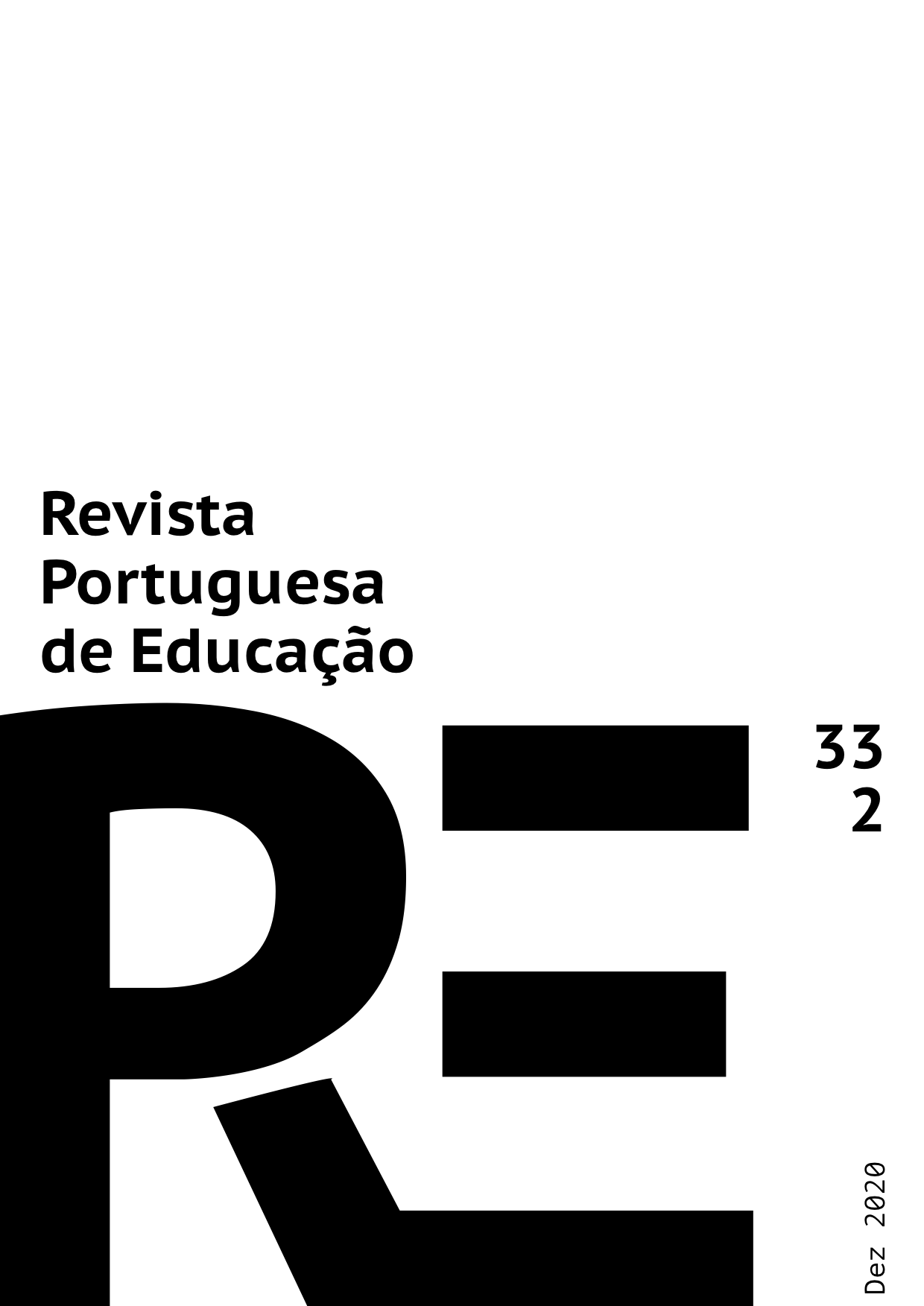O uso de narrativas biográficas em investigação
Quais valores, posturas e métodos adotar?
DOI:
https://doi.org/10.21814/rpe.19741Palavras-chave:
Investigação narrativa, Metodologia, Saúde e EducaçãoResumo
Este artigo tem como objetivo refletir sobre as três dimensões – ética e deontológica, heterobiográfica e de engajamento social – inscritas na abordagem da pesquisa biográfica em educação. Para tanto, tomará como base um estudo desenvolvido junto a profissionais de saúde de um serviço de reanimação pediátrica e cuidados intensivos pediátricos de um hospital de referência aos cuidados de crianças, situados na cidade de Paris/França. Tal estudo teve como objetivo compreender a construção da trajetória biográfica dos profissionais de saúde que trabalham em reanimação e cuidados intensivos, assim como os aprendizados adquiridos no curso das experiências vividas pelos mesmos. No escopo do presente artigo colocou-se em relevo a postura adotada pelo pesquisador, as escolhas metodológicas, a maneira de conduzir o trabalho de campo e o processo de interpretação e análise a fim de tecer os laços entre investigação, saúde e educação com vistas a enfatizar a relevância social da abordagem biográfica em educação e seu carácter interdisciplinar. Como resultados, a investigação contribuiu para erigir uma compreensão sobre como os sujeitos participantes se constroem e aprendem a partir das experiências de vida, usando-as como motores de suas formas de agir no quotidiano de trabalho. Essa compreensão social e eticamente construída não teria sido possível sem a adopção de valores e posturas que valorizem a construção partilhada do conhecimento.
Downloads
Referências
Dubois, C ; Lesage, F. & Séguret, S. (2018). Les soignant face au temps du mourir en réanimation pédiatrique. In : A. Ciccone. Handicap et mort (pp. 49-61). Paris : ERES.
Canesqui, A M. (2007). Estudos antropológicos sobre os adoecidos crônicos. In: Olhares socioantropológicos sobre os adoecidos crónicos (pp. 19-51). São Paulo: Hucitec.
Creswell, J.W. (1997) Five qualitative traditions of inquiry. In: Qualitative and researcher design (pp. 41-72). London: Sage Publications.
Delory-Momberger, C. (2012). Abordagens metodológicas na pesquisa biográfica. Revista Brasileira de Educação, 17(51), 523-536.
Delory-Momberger, C. (2014) De la recherche biographique en éducation. Fondements Méthodes Pratiques. Paris: Téraèdre, coll. « Autobiographie et éducation ».
Henriques F. (2014). A racionalidade hermenêutica de Paul Ricoeur : diálogo, abertura e inclusão. Revista Portuguesa de História do Livro. 33-34, 81-98.
Honoré, B. (2013a). Soigner, former, se former – cultiver ensemble les possibilites de la vie. Paris: Seli Arslam.
Honoré, B. (2013b). Produire sa vie et son histoire – résonances philosophiques. Lyon: Chronique sociale.
Josso (2007). A transformação de si a partir da narração de histórias de vida. Educação, 3(63), 413-438.
Lainé A. (2007). Faire de sa vie une histoire : théories et pratiques de l'histoire de vie en formation. Paris: Desclée de Brouwer.
Laplantine F. (2003) Aprender antropologia. São Paulo: Brasiliense.
Machado, M. H. (19995) Macro-micro: os novos desafios da sociologia e os efeitos no campo da saúde: In: A. M. Canesqui (org) Dilemas e desafios das ciências sociais na saúde coletiva (pp. 83-93) São Paulo: Hucitec/Abrasco. .
Moreira, M. C. N. & Souza, W. S. (2002) A microssociologia de Ervin Goffman e a análise relacional: um dialogo metodológico pela perspectiva das redes sociais na área da saúde. Teoria e Sociedade, 9(9), 38-61.
Nunes, E. D. (2009). Goffman: contribuições para a sociologia da saúde. Physis, 19(1), 173-187. https://doi.org/10.1590/S0103-73312009000100009
Pineau, G. & Marie-Michèle (2012) Produire sa vie : autoformation et autobiographie, Montreal : Éditions Saint-Martin ; Paris ; Edilig.
Porter, E. H., (1950). An introduction of Therapeutic Counseling, Boston, Houghton Mifflin.
Ricœur, P. (1965). Existence et herméneutique. Dialogue. 4, 1-25. Disponível em: http://journals.cambridge.org/abstract_S0012217300033278 (consultado em maio/2019).
Rogers, C. (1967). Le développement de la personne. Paris: Dunod.
Séguret, S. , Hubert, H & Golse, B. (2012). Analyse des pratiques en réanimation pédiatrique – travail d’une psychologue dédiée à l’équipe soignante. In : La psychiatrie de l’enfant (pp. 575-605). Paris : Presses Universitaire de France, vol. 55.
Vásquez, G. C. & Arena, A. P. B. (2017). Universos do conhecimento. Reflexões sobre a investigação narrativa na educação. Revista Portuguesa de Educação, 30(2),187-202. https://dx.doi.org/10.21814/rpe.11937
Downloads
Publicado
Como Citar
Edição
Secção
Licença
1. Autores conservam os direitos de autor e concedem à revista o direito de primeira publicação, com o trabalho simultaneamente licenciado sob a Licença Creative Commons Attribution 4.0 CC-BY-SA que permite a partilha do trabalho com reconhecimento da autoria e publicação inicial nesta revista;
2. Autores e autoras têm autorização para assumir contratos adicionais separadamente para distribuição não-exclusiva da versão do trabalho publicada nesta revista (ex.: depositar em repositório institucional ou como capítulo de livro), com reconhecimento de autoria e publicação inicial nesta revista;
3. Autores e autoras têm permissão e são estimulado/as a publicar e distribuir o seu trabalho online (ex.: em repositórios institucionais ou na sua página pessoal), já que isso pode aumentar o impacto e a citação do trabalho publicado (Veja O Efeito do Acesso Livre).
Esta obra está licenciada sob uma Licença Creative Commons - Atribuição Compartilhamento pela mesma Licença Internacional 4.0




















